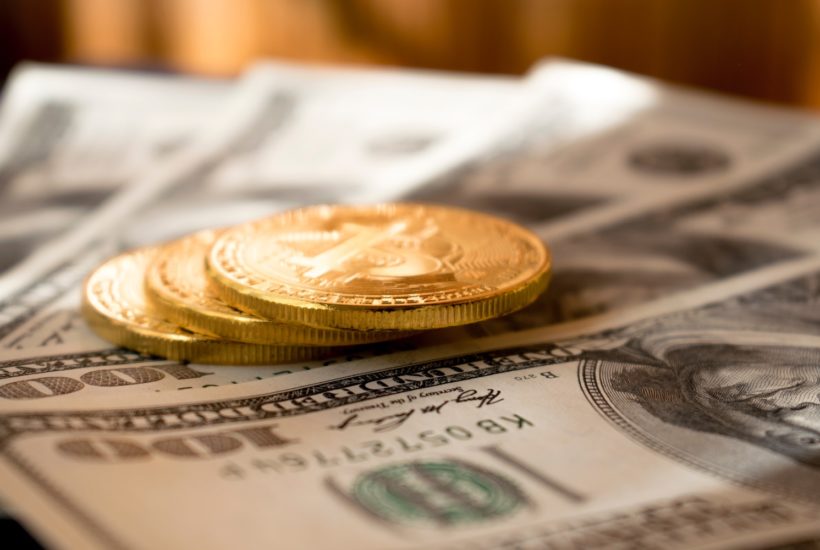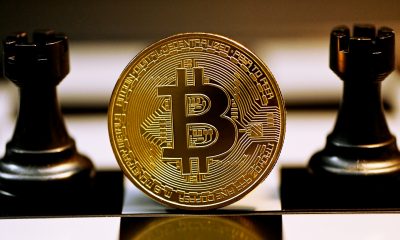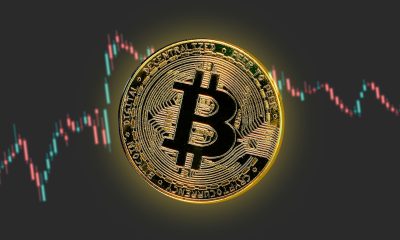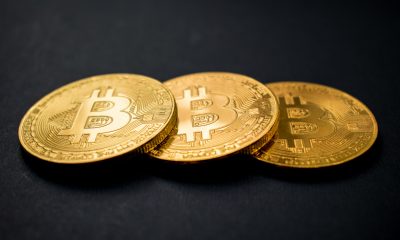Crypto
The price of Bitcoin expected to skyrocket in the next 12 months
Many Bitcoin Hodlers (BTC) hope that despite, or more accurately because of, the COVID-19 pandemic and the turmoil in traditional financial markets, the Bitcoin price will skyrocket. However, this may not happen without the active participation of the cryptosphere itself. If the US dollar were to devalue in the next 12 months, Bitcoin is more likely to become a valuable reserve.

“While the properties of the BTC are unique, the industry needs to work on the way it talks about it. It also needs to improve its marketing and user experience so that people can understand why this is an obvious investment opportunity and why they are buying it,” said Zac Prince, co-founder of BlockFi, a leading U.S. start-up company specializing in crypto lending.
According to him, as long as there is no better option against the US dollar, Bitcoin will continue to benefit from its status as a global reserve.
However, “for fixed assets such as Bitcoin, efforts to print money from fiat currencies should lead to upward price movements,” Prince said. “For crypto, we will continue to see inflows from retail and institutional investors, which is due to the acquisition of new customers by major platforms,” he added.
A recent survey has shown that senior trading executives believe that major trading companies are about to make the leap to crypto and that their preferred trading pair is the BTC/USD pair. In addition, the leading chat application operator Line has just sent another major sign towards the growing adoption, stating that 62% of the users of its Bitmax trading platform in Japan are new to crypto.
Discover the most important business news from around the world with our companion app, Born2Invest. Download our app for free, and be the first to find out the latest happenings in the crypto sector and how Bitcoin could win from the current crisis.
Portable “gold” and inflation
There is potentially more good news for Bitcoin and the financial systems in general, as this global crisis could lead to fundamental change.
“While the financial crisis of 2008 led to the birth of Bitcoin, this new crisis could really be the one that defines Bitcoin as a digital asset, but also a way to bring real change to the financial system and democratize economies and markets. The result could be a more optimized financial system that would be a hybrid (both centralized and decentralized) with the best of both worlds,” said Hirander Misra, President, and CEO of financial and technology solutions provider GMEX Group.
Misra said both gold and BTC investors are now partially withdrawing from the current financial system and in this way “they can weather the economic contraction until things calm down.”
“Turning to gold and the BTC and reducing the short-term exposure of financial assets will also protect investors from a system that carries counterparty risk as governments and institutions will become increasingly indebted,” he said, noting that “the BTC is a digital asset and is more portable than gold. Even if it is fully asset-backed tokenized gold, the underlying asset must always be stored somewhere,” Misra added.
Meanwhile, Bitcoiners are talking about hyperinflation, which should help the adoption of the BTC. Last week, a report by the Open Money Initiative denied that Venezuelans are using the BTC as a store of value against the devaluing bolivar. Instead, it is used “as an intermediary to obtain more stable currencies such as the U.S. dollar, Colombian peso, Chinese yuan and various stablecoins.”
However, if the US dollar were also to devalue, Bitcoin is more likely to become a valuable reserve.
Dollar may devalue in the next 12 months
The extent of inflationary pressures will depend on the increase in the money supply needed to facilitate these quantitative easing programs. In the case of the United States, the country has a large fiscal deficit, and it will increase as a result of: (a) the economic contraction resulting from the crisis; and (b) the aid program.
“An increase in the budget deficit has a direct correlation with rising inflation, which, combined with the increase in the money supply, leads to inflationary pressure on two fronts,” Misra said. “This will certainly lead to higher inflation, but the fundamentals of the US economy are strong enough that this will not lead to hyperinflation,” he added.
However, he estimated that the dollar could devalue in the next 12 months as its value “has been largely based on sentiment, which in turn has a correlation with the U.S. balance of payments.” In addition, U.S. exports have become more expensive for buyers using other currencies, while the stronger Dollar has led to cheaper imports into the U.S.
“This will put additional negative pressure on the balance of payments and hamper economic expansion in the short term as demand for US products on the international market is reduced.” That said, the situation will begin to reverse if the dollar weakens, while despite job losses and economic contraction, “the U.S. economy will begin to expand again once the pandemic is controlled as it has been in China,” Misra said.
As for Europe, Misra also argued that inflationary pressures will be felt there too, as problems caused by the pandemic in the Eurozone have made quantitative easing “inevitable”. Spain is currently experiencing significant strains, while the economies of Italy and France are not as strong as Germany’s, “and are heading towards an inevitable recession of greater magnitude.”
“Turning on the taps of spending will lead to inflation around the world and the question remains where it will be most severe,” Mr. Misra concluded.
In the meantime, CTS inflation is expected to decline
Andrei Edell, founder of a trading card game on Ethereum (ETH), Flowerpatch, said it should be remembered that most cryptos, including the BTC, have historically had high inflation: in the order of 5%-10%. “It’s actually a kind of miracle that prices have kept rising when so many new cryptos were being created all the time. ETH still has an inflation rate of around 4.4% per year, but the long-awaited upgrade of Ethereum 2.0, aka Serenity, should bring it into the 1% range.”
However, since Ethereum can be burned in ETH 2.0 transactions, the net inflation rate could actually turn negative, according to the specialist. In the case of the BTC, he pointed out that the halving, expected in May, will bring its inflation rate below 2% for the next four years. This is one of the reasons why a speculative bubble is likely in the next 12 months, Edell said. However, it may not be that simple.
__
(Featured image by Dmitry Demidko via Unsplash)
DISCLAIMER: This article was written by a third party contributor and does not reflect the opinion of Born2Invest, its management, staff or its associates. Please review our disclaimer for more information.
This article may include forward-looking statements. These forward-looking statements generally are identified by the words “believe,” “project,” “estimate,” “become,” “plan,” “will,” and similar expressions. These forward-looking statements involve known and unknown risks as well as uncertainties, including those discussed in the following cautionary statements and elsewhere in this article and on this site. Although the Company may believe that its expectations are based on reasonable assumptions, the actual results that the Company may achieve may differ materially from any forward-looking statements, which reflect the opinions of the management of the Company only as of the date hereof. Additionally, please make sure to read these important disclosures.
First published in cryptonews, a third-party contributor translated and adapted the article from the original. In case of discrepancy, the original will prevail.
Although we made reasonable efforts to provide accurate translations, some parts may be incorrect. Born2Invest assumes no responsibility for errors, omissions or ambiguities in the translations provided on this website. Any person or entity relying on translated content does so at their own risk. Born2Invest is not responsible for losses caused by such reliance on the accuracy or reliability of translated information. If you wish to report an error or inaccuracy in the translation, we encourage you to contact us.

-

 Impact Investing7 days ago
Impact Investing7 days agoCDP Approves €1.5 Billion Package to Boost Industry, Renewables, and International Development
-

 Crypto2 weeks ago
Crypto2 weeks agoUniswap and BlackRock Partner to Launch BUIDL in DeFi
-

 Impact Investing2 days ago
Impact Investing2 days agoThe Sustainability Revolution: Driving a Net-Zero, Nature-Positive Economy
-

 Biotech1 week ago
Biotech1 week agoNew Molecular Clues Explain Aggressive Neuroblastoma and Point to Targeted Treatments

























